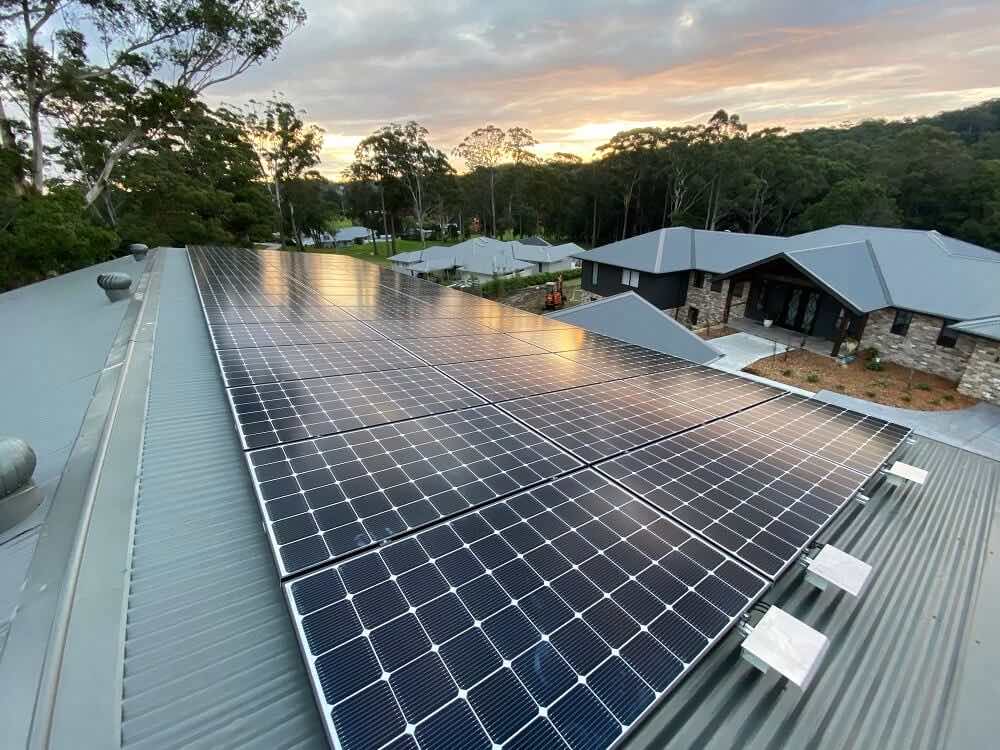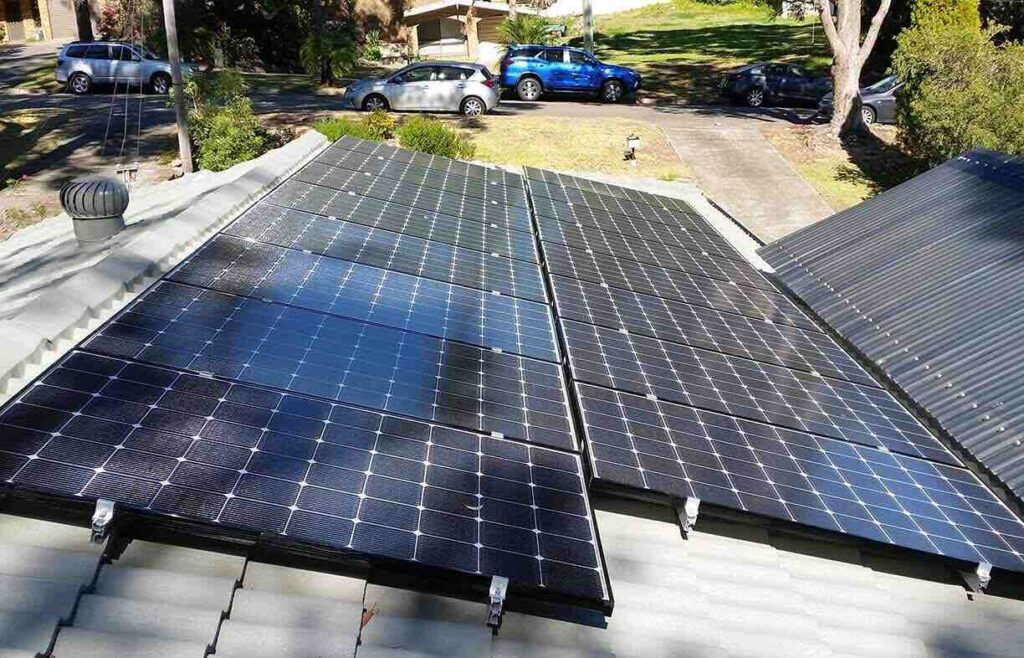Last update May 28th, 2024 at 10:46 am
Australia is known for its sunny and dry climate, which is also one of the reasons that solar technology is so popular here. As you might already know, solar panels will produce power when sunlight hits the panels.
Although Australia is mostly sunny, you can’t expect the sun to shine every day. In addition to this, your rooftop might be shaded by surrounding trees or buildings.
So, what happens to the panel efficiency during cloudy weather or shading? Will the solar panel still work, and if so – will it produce enough electricity?

This will affect whether solar panels work in the shade or not…
Solar panels may or may not work when they are located in shadow. Both the system type, shadow type and other factors will affect whether the solar system can produce solar energy or not.
The inverter type
Solar panels need a so-called inverter to be able to convert direct current (DC) into alternating current (AC) that can be used by your home appliances. In Australia, most solar panel systems use a string inverter.
In string inverters, the components are connected to each other in a series. If only one solar panel is exposed to shade, this will usually cause the whole series of panels to stop working (also when the rest of the solar panels are exposed to bright sunlight).
If one solar panel is shaded by a tree and works at 50% of its original capacity, the rest of the solar panels will also work at 50%. In other words, if you have a string inverter-based solar system, partial shading of your rooftop can be a big problem.
Systems with so-called microinverters may be a better solution for homeowners who experience shading throughout the day. With microinverters, each solar panel will have its own inverter. If one panel is exposed to shade, the rest will not be affected.
The shade type
Shading can be caused by many different objects. Some objects, like buildings or dirt on the panel surface, will often cause opaque shading where no (or almost no) sunlight will reach the solar panel/s.
Other obstructions, like clouds or trees, may cause translucent shading where some sunlight will still reach the panels. Here are some of the objects that may stop the sunlight from hitting the solar panels:
- Clouds
- Trees
- Buildings
- TV antennas, chimneys and the roof itself
- Dirt and grime
If your home is surrounded by tall buildings, the solar panels may not produce electricity as efficiently as they should. But when it comes to shading from clouds, this will usually not affect solar energy production as much as you might think.

How long does the shading last?
When it comes to solar panel efficiency in shaded conditions, it is also necessary to consider how long the shading will last. If there is a tree that will shade your rooftop for a few minutes throughout the day, this will usually not cause a significant drop in solar efficiency.
However, if your rooftop is shaded by tall buildings for hours throughout the day, solar panels may not be worth it.
Solar panel quality
Some solar panels work more efficiently than others. If you invest in a high-quality solar panel system, this might give a higher energy output than a low-quality system in cloudy weather.
How to reduce shading on your solar panels
There are many ways to ensure better solar conditions on your rooftop. Some obstructions are not possible to change, like a nearby building. But if there is a tree that may shade your rooftop, it may be trimmed or removed.
Also, make sure that the solar panels are mounted in a beneficial way. Remember, shadows from trees or buildings may not affect all parts of your rooftop.
You can also consider replacing your string inverter with micro inverters. This will be beneficial if your rooftop is exposed to partial shading throughout the day.
Do solar panels work at night?
The simple answer to this question is “no”. Solar panels will need sunlight (direct or filtered sunlight) to be able to produce electricity. During the night there is no sunlight, and your solar system will stop working.
By installing a solar battery, you may store surplus energy throughout the day (when the system is producing electricity). You can then use the stored energy at night if necessary.
Do you consider getting solar panels?
If you are not sure whether solar panel technology is right for you or not, an installer may help you find the best solutions. Even if shade hits your rooftop during the day, solar panels can still be a good investment. This will depend on both the shadow and inverter type.
Find an installer today, and discuss your solar options!